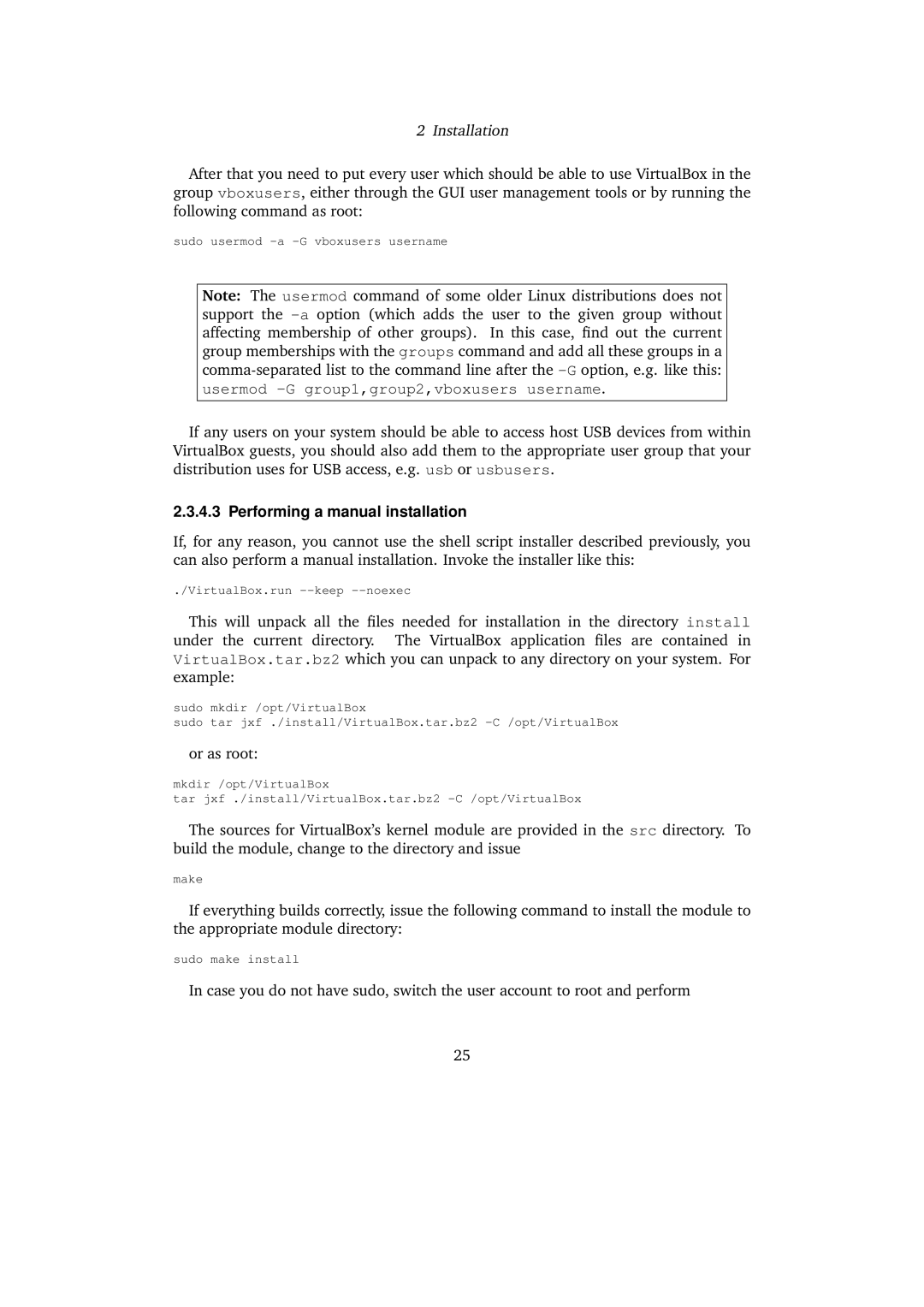
2 Installation
After that you need to put every user which should be able to use VirtualBox in the group vboxusers, either through the GUI user management tools or by running the following command as root:
sudo usermod
Note: The usermod command of some older Linux distributions does not support the
If any users on your system should be able to access host USB devices from within VirtualBox guests, you should also add them to the appropriate user group that your distribution uses for USB access, e.g. usb or usbusers.
2.3.4.3 Performing a manual installation
If, for any reason, you cannot use the shell script installer described previously, you can also perform a manual installation. Invoke the installer like this:
./VirtualBox.run
This will unpack all the files needed for installation in the directory install under the current directory. The VirtualBox application files are contained in VirtualBox.tar.bz2 which you can unpack to any directory on your system. For example:
sudo mkdir /opt/VirtualBox
sudo tar jxf ./install/VirtualBox.tar.bz2
or as root:
mkdir /opt/VirtualBox
tar jxf ./install/VirtualBox.tar.bz2
The sources for VirtualBox’s kernel module are provided in the src directory. To build the module, change to the directory and issue
make
If everything builds correctly, issue the following command to install the module to the appropriate module directory:
sudo make install
In case you do not have sudo, switch the user account to root and perform
25
